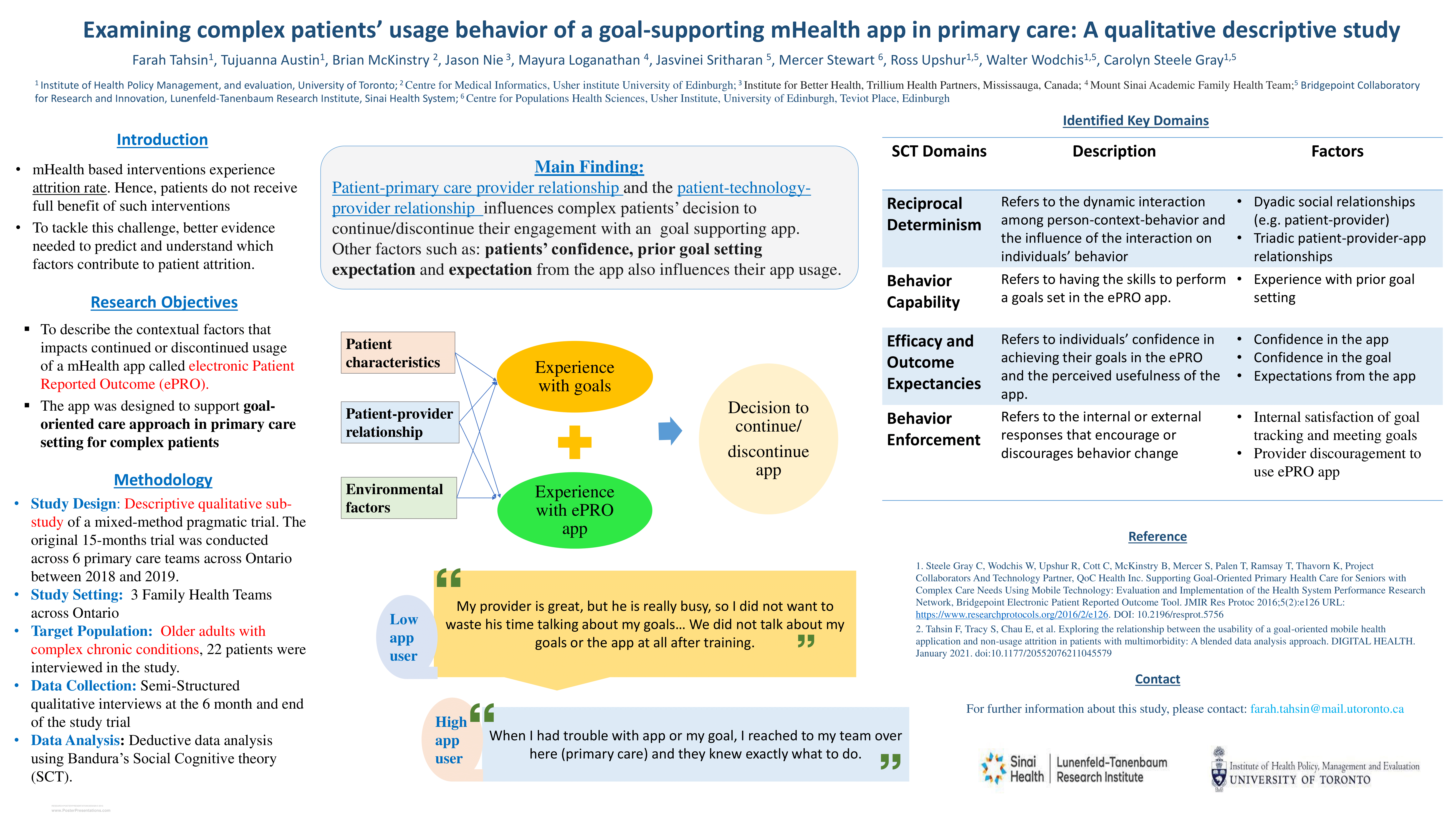PCR027: Examining complex patients' usage behavior of a goal-supporting mHealth app in primary care: A qualitative descriptive study (Pearls)
Farah Tahsin, MSc; Carolyn Steele Gray, PhD, MA; Brian McKinstry; Stewart Mercer; Mayura Loganathan, MD; Jason Nie, MSc
Abstract
Context: mobile health (mHealth) applications are increasingly being adopted in primary care settings to support patients living with multiple chronic conditions. Due to patients’ individual and setting-specific barriers, mHealth apps often experience high attrition rates which leads to poorer implementation and sustainability of the interventions. To tackle this issue of lower uptake and usage of mHealth apps, a better understanding of the link between patients’ contexts and their mHealth usage behaviour is needed. This link of patient context-usage will inform primary care providers and patients to select appropriate mHealth interventions based on patient needs. Objective: To describe the contextual factors that impact continued or discontinued usage of a mHealth app called electronic Patient Reported Outcome (ePRO) which was designed to support a goal-oriented care approach in a primary care setting for complex patients. Study design: Descriptive qualitative sub-study of a mixed-method pragmatic trial. The original 15-months trial was conducted across six primary care teams across Ontario between 2018 and 2019. Setting: Six primary care practices across Ontario, Canada. Population Studied: Older adults with complex chronic conditions, 45 patients were included in the study. Intervention: The study participants used the ePRO app in addition to their usual care. Outcome measures: Qualitative interviews were conducted with 22 patients at midpoint and end of the study to explore their experience with the ePRO app. Guided by social cognitive theory, a deductive thematic analysis method was used to analyze the interview data. Results: The patient-provider relationship emerged as a key factor that shaped patients’ experience with the app and subsequent decision to continue using the app. Other factors that contributed to the patient's decision to continue using the app were: personal and social circumstances, device usability and perceived usefulness, patients’ prior experience in goal-related behaviours and confidence in one’s capability. Conclusion: The study findings highlighted that complex patients’ health-related goals change over time. Primary care researchers and developers seeking to build tools to support similar goal-oriented or person-centred models of care delivery should emphasize developing adaptable and modifiable health technologies that are easily customizable by patients and their care teams to respond to patients’ changing needs.

Jack Westfall
jwestfall@aafp.org 11/20/2021Great poster and abstract. Thanks